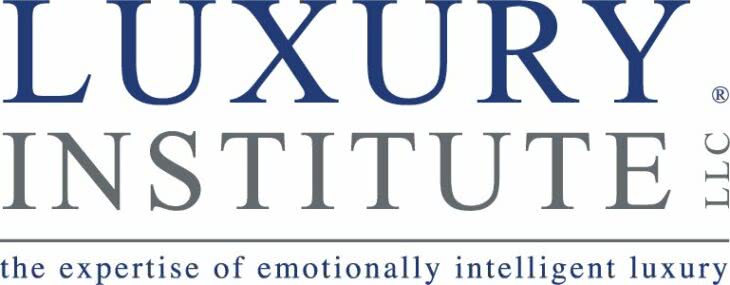
Digital Luxury Marketing Moves From Cookie-Centric to Emotionally Intelligent
This blog was contributed by The Luxury Institute.
Luxury really is different. Luxury and premium brands cater to the most affluent, educated, and sophisticated consumers. The luxury goods and services that wealthy and uber-wealthy consumers buy are highly considered, high-value, and high-emotion purchases.
Most luxury brands have allowed third-party cookies to take over their unique, humanistic digital customer experiences, annoying consumers as soon as they land on the brand website, making them waste precious time to preserve their privacy, and threatening to withhold access if they don’t agree to onerous tracking terms. These interactions are devoid of the beauty, humanity, and creativity that luxury brands are known to design throughout their rich histories.
Self-interested digital experts who advise brands will try to convince luxury brand leaders that, in the Digital Age, this is the way forward. Brands do need to comply with all legal and privacy regulations, but what brands do digitally to engage and build human relationships with luxury customers, and, most importantly, how they do it, should be a creative and emotionally intelligent choice.
True luxury brands need to highly differentiate by delivering unique and extraordinary experiences that build long-term relationships. Below, Luxury Institute outlines 8 recommendations for brands to test and optimize over time to build trust and find an intelligent path towards respectful, symmetrical customer data relationships.
1. Eliminate the impersonal online gatekeeping.
Every luxury brand begins the online experience by presenting onerous, hard to understand tracking terms as the greeting. Instead, brands should welcome customers to the site as dignified, valued human beings. The first thing luxury brands can do is gently and respectfully inquire about the reason for the visit, to try to optimize it for the customer. Next, brands can ask the customer if they would like to navigate on their own, would like to navigate with a human on live chat, or engage in livestream shopping with an expert associate. By providing a choice, brands can gauge how willing consumers are to engage, and how much curation they require.
2. If you must for now, intelligently ask the customer for consent to track.
After confirming the reason for the visit and how she will engage on the site (self-serve or with a curator), the brand can respectfully ask her for consent to track the experience to best personalize for the customer. Communicate positive policies such as “Our brand will never sell or share your data” and “your data will be encrypted.” Then, present the legally compliant, customer value generating reasons for tracking in a simple and kind way. Humanistic and trust-building gestures, along with legal protections, will likely inspire many to consent.
3. Empower customers to take control of their data.
If customers agree to be tracked, whether they buy or not, offer to create a complimentary personal data vault, which they completely control. Build it with the data customers volunteer along with legally gathered first-party data. Over time, as trust is earned, customers will share their favorite products, brands, transactions, and other insights. In return, identify helpful insights about the customer that enhance their lives, and share actionable valuable insights about cohorts that they will also find valuable.
4. Offer to sign an NDA with the customer.
Today, all brands have cybersecure, encrypted data vaults. True luxury brands never sell or share customer data. Luxury brands can offer to sign a brief, simple, non-disclosure agreement with each customer. This will guarantee to the customer that when they share their precious data, they are assured of secrecy beyond privacy regulations.
5. Guarantee the customer that you will not buy third-party data.
Studies show that third-party data is notoriously unreliable, incomplete, and expires quickly. It is collected via secretive, deceptive, unethical, sometimes illegal, means. Customers know that and are resentful of having their data sold by data brokers. When brands reassure intelligent and sensitive affluent customers that they are willing to promote their best data interests, customers will be willing to share more relevant data over time.
6. Ask the customer to share their intent to buy when the time is right for them.
When customers feel a need or desire to buy, they often also have an idea, which trusted brands they want to consider. Ask customers to join a “real-time purchase intent service” so they can signal to the brand when they are interested in shopping or buying an item via their preferred communication channel. Reward them for doing so with special benefits such as invitations to exclusive events.
7. Don’t spam the customer into unsubscribing.
Brands consider it a great victory when the customer agrees to provide their email address or phone number. Marketers often assume that this is tacit customer consent to go on a marketing spamming spree. Instead, ask the customer what means of communication they prefer, how often, and under what circumstances. Never abuse the trust.
8. Ask the customer to license their data with complete privacy for fair value rewards.
Customers are becoming fully aware that they fully own/co-own all the data they create, online and offline. Once some, or all, of the trust-earning recommendations above have been optimally tested and evaluated, respectfully ask customers to share their copyright-protected data from digital platforms using encrypted, secure technology. Test and learn the best way to ask and follow all privacy regulations. Offer fair value rewards and benefits for the use of the data, such as a gift card, or a complimentary room night. Accessing rich, relevant descriptive and predictive data from customers is a breakthrough innovation and Luxury Institute’s Advanced Personalization Xchange (APX) is leading the luxury and premium industry. This approach will become the norm in the next 2-years as strict privacy legislation is enacted and third-party cookies disappear.
Over the next decade, instead of the customer data traveling to the algorithms, the algorithms will come to the data in the customer’s encrypted personal data vault. The US government has already made zero trust architecture the security tech standard for the 2020s, guaranteeing it will happen. Luxury brands must steadily prepare for the Web 3.0 revolution that will empower the full decentralization of personal data, where individuals will store all their data in a fully encrypted, zero trust architecture, personal data store. Brands that have earned trust throughout will receive consent to access the insights, within the customer’s safe space, in real-time, to deliver true personalization. Brands that have failed to gain trust with affluent consumers will be denied access.
Luxury Institute believes that many affluent consumers will find the recommendations above deeply trustworthy in an imperfect world. For luxury brands, whose customer experiences and value propositions can deliver massive customer lifetime values, it is imperative to build human, trusted, emotionally intelligent customer relationships now by testing and learning; by taking intelligent risks. Data is the fuel of the digital age. How brands access and use that precious human fuel, legally, ethically, creatively, and earning trust every little step of the way, will determine the luxury winners and losers in the 2020s.

About Luxury Institute and the Global Luxury Expert Network (GLEN)
Luxury Institute is the world’s most trusted research, training, and elite business solutions partner for luxury and premium goods and services brands. With the largest global network of luxury executives and experts, Luxury Institute has the ability to provide its clients with high-performance, leading-edge business solutions developed by the best, most successful minds in the industry.
In the last 20 years, Luxury Institute has served over 1,100 luxury and premium goods and services brands. Luxury Institute has conducted more quantitative and qualitative research with affluent, wealthy and uber-wealthy consumers than any other entity. This knowledge has led to the development of its scientifically proven high-performance, emotional intelligence-based education system, Luxcelerate, that dramatically improves brand culture and financial performance. Luxury Institute has also innovated the Advanced Personalization Xchange (APX), powered by DataLucent, to empower affluent consumers to license their digital platform data to premium and luxury brands they trust legally, securely and privately in exchange for fair value rewards and benefits.